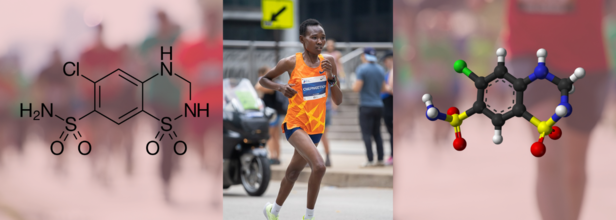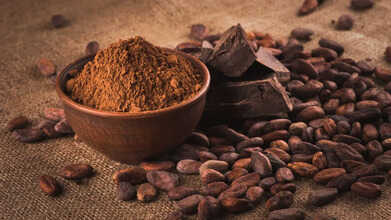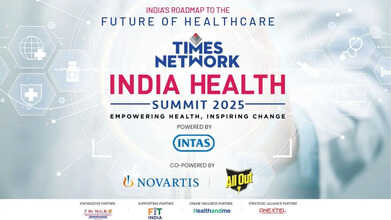- Health Conditions A-Z
- Health & Wellness
- Nutrition
- Fitness
- Health News
- Ayurveda
- Videos
- Medicine A-Z
- Parenting
- Web Stories
Ruth Chepngetich Suspended As Her Dope Test Found Increased Levels Of HCTZ That Dilutes Other Drugs From Being Detected

Credits: Wikimedia Commons
In a major blow to the athletics world, Ruth Chepngetich, the women’s marathon world record holder, has been provisionally suspended after testing positive for a banned substance. The Athletics Integrity Unit (AIU) made the announcement on Thursday, July 17, sending ripples across the global running community.
The 30-year-old Kenyan runner, who has been hailed as one of the most dominant figures in long-distance running, now finds her illustrious career under intense scrutiny.
What Is the Drug Behind the Ban?
Chepngetich tested positive for hydrochlorothiazide (HCTZ), a diuretic commonly used in medicine to treat conditions such as high blood pressure and fluid retention.
While HCTZ is not a performance-enhancing drug, it is classified as a prohibited substance by the World Anti-Doping Agency (WADA) due to its potential use as a masking agent.
HCTZ increases urine output, which can dilute the concentration of other substances in the urine, including performance-enhancing drugs, making them harder to detect. This is why it remains under strict monitoring in competitive sports.
Chepngetich’s sample, collected on March 14, 2025, reportedly showed an HCTZ concentration of 3,800 nanograms per millilitre, dramatically higher than the WADA threshold of 20 ng/mL. This has raised immediate red flags for potential misuse.
Under Scrutiny
Before this suspension, Ruth Chepngetich’s career had been nothing short of phenomenal. She captured global attention in October 2024 when she smashed the women’s marathon world record at the Chicago Marathon, clocking in at 2:09:56, nearly two minutes faster than the previous record held by Ethiopia’s Tigst Assefa. It was her third Chicago Marathon victory, reinforcing her status as a marathon titan.
Chepngetich’s reputation was also built on her grit, especially visible during her gold medal win at the 2019 World Championships in Doha, where she overcame brutal midnight heat to win the marathon. These performances had elevated her to the status of a national icon in Kenya, a country with a rich tradition in long-distance running.
However, the doping revelation now casts a shadow over those accomplishments and has triggered broader concerns about doping in elite marathons.
Investigation Timeline and Next Steps
According to the AIU, Chepngetich was notified of her positive result on April 3, 2025. While she wasn’t immediately banned, she voluntarily accepted a provisional suspension on April 19 as the investigation began.
“Chepngetich was not provisionally suspended by the AIU at the time of notification; however, on 19 April, she opted for a voluntary provisional suspension while the AIU’s investigation was ongoing,” said Brett Clothier, Head of the AIU.
On July 17, the AIU formally issued a Notice of Charge and imposed its own provisional suspension, pending further action.
Chepngetich now has the right to challenge the findings and present her defense before a Disciplinary Tribunal.
If the charges are upheld, she could face a ban of up to two years, depending on whether the tribunal finds aggravating circumstances or any prior infractions.
While Chepngetich’s case is still under review, it adds to a troubling pattern that could shake public trust in elite sports. Her legacy — once built on speed, stamina, and triumph — now hangs in the balance.
Can Cocoa Keep You Young? Study Links It to Slower Aging

Credits: Canva
In a world where everyone seems to be chasing the secret to healthy aging, whether through expensive creams or trendy supplements, researchers might have found an unexpectedly sweet solution: cocoa. Yes, the same bean behind your favourite chocolate bar may do more than lift your spirits, it could help your body and heart age more gracefully.
Cocoa Extract Could Slow Aging Process In Adults, Reveals Study
A new study by Mass General Brigham looked at how cocoa supplements might fight the kind of low-level chronic inflammation that comes with age, often called “inflammaging.” Researchers from the COcoa Supplement and Multivitamin Outcomes Study (COSMOS) found that cocoa extract helped lower high-sensitivity C-reactive protein (hsCRP), a marker linked to heart disease. This may help explain earlier findings that cocoa can reduce heart-related deaths by nearly 27%.Between 2014 and 2020, more than 21,000 adults aged 60 and above took part in COSMOS. This latest analysis followed 598 of them over two years. Those taking cocoa supplements saw their hsCRP levels drop by about 8.4% each year, compared to those on a placebo. While other inflammation markers showed smaller or mixed results, one immune-related protein, interferon-γ, increased, hinting at exciting new areas for research.
What Is Inflammaging?
Inflammaging refers to a slow, chronic inflammation that develops as we age, often without obvious symptoms. This ongoing low-grade inflammation is marked by higher levels of pro-inflammatory molecules in the body and is linked to many age-related conditions, including heart disease, type 2 diabetes, neurodegenerative disorders, and frailty. Studies by Colorado State University suggest that inflammaging plays a central role in the aging process and makes older adults more vulnerable to illness and complications.
Heart disease remains the number one cause of death in the United States, with the Centers for Disease Control and Prevention reporting that one person dies every 34 seconds from cardiovascular disease. That’s why findings like these matter.
“While cocoa extract is not a replacement for a healthy lifestyle, these results are encouraging and highlight its potential role in modulating inflammation as we age,” said Yanbin Dong, Ph.D., senior study author and director of Augusta University’s Georgia Prevention Institute, in a news release.
Healthier Ageing with Cocoa
Experts say much of cocoa’s potential benefits come from flavanols, natural compounds found not just in cocoa beans, but also in tea, berries, and grapes. These small but powerful compounds have been linked to reduced inflammation and better blood vessel function. With large-scale human data now supporting these effects, scientists are increasingly optimistic about their role in slowing age-related diseases.
Dr. Howard Sesso, a senior researcher on the study, explains: “Our interest in cocoa started with its links to heart health. Now, we're seeing that it might be acting through age-related inflammation.”
While cocoa extract shows promising potential in slowing age-related inflammation and supporting heart health, it isn’t a magic bullet. Experts emphasize that the key to healthier aging remains a balanced lifestyle, regular exercise, a nutrient-rich diet, quality sleep, and routine health check-ups.
Is Your Body Aging Too Quickly? 5 Warning Signs You Shouldn’t Ignore

Credits: Canva
Aging is a natural process. It happens when the rate at which our cells die begins to outpace the rate at which they regenerate. Every cell in the body has its own lifespan, for example, red blood cells live for around 100 to 120 days, while liver cells (hepatocytes) last about 200 to 300 days. Over time, as regeneration slows, the signs of aging begin to appear.
However, in some people, this process speeds up. Factors like long-term exposure to toxins, severe physical trauma, metabolic disorders such as cancer, or the failure of vital organs can push the body into premature aging. We got in touch with Dr Saurish Hegde, MD community medicine, Public health specialist who told us more about the same.
Warning Signs You May Be Aging Faster
- Constant fatigue and loss of energy: Everyday tasks feel harder, and the body tires more quickly than before.
- Skin and hair changes: Reduced collagen and keratin production leads to sagging, wrinkles, and thinning or loss of hair.
- Cognitive decline: Memory lapses, difficulty in planning, and problems with calculations may point to aging-related changes in the brain as grey matter begins to shrink.
- Chronic conditions: Lifestyle diseases like diabetes and hypertension are often tied to aging, linked to reduced insulin production and thicker, slower blood flow.
Can Premature Aging Be Prevented?
While no one can stop the clock, adopting healthy habits can slow it down. Regular physical activity, a diet rich in antioxidants from fruits and vegetables, quality sleep, and timely health screenings can all help delay the impact of aging and keep the body functioning better for longer.
What Causes Premature Aging?
In most cases, premature aging happens because of everyday habits or environmental factors that we can control. Doctors call this extrinsic aging. The first signs usually show up on the skin. While skin changes are a normal part of getting older, if they appear too early, lifestyle and surroundings are often to blame.
Light exposure is the biggest culprit
- Sunlight (UV rays): Too much sun speeds up skin aging, a process known as photoaging. This alone causes about 90% of the visible changes we see in skin, such as wrinkles, age spots, and rough texture. UV rays also damage cells, which raises the risk of skin cancer.
- Blue light and infrared light: The remaining 10% of skin damage comes from high-energy visible (blue) light and infrared light. Blue light comes from the sun and also from screens, while infrared is the heat we feel. These don’t raise cancer risk but they do weaken collagen and elasticity, making skin sag sooner.
- Smoking: Nicotine toxins break down collagen and elastin, causing sagging skin, wrinkles, and a hollow look.
- Poor diet: Diets high in sugar and refined carbs may speed up aging, while diets rich in fruits and vegetables help protect the skin.
- Alcohol: Heavy drinking dehydrates and damages skin over time.
- Lack of sleep: Poor or insufficient sleep has been linked to faster cellular aging.
- Chronic stress: High cortisol levels from stress reduce substances like collagen and hyaluronic acid that keep skin smooth and firm.
In rare cases, certain medical conditions can also cause early aging, such as progeria, Werner syndrome, Cockayne syndrome, Bloom syndrome, and a few other genetic disorders.
The Most Coveted Gathering of India’s Healthcare Leaders: TIMES NETWORK INDIA HEALTH SUMMIT 2025

India’s healthcare leaders are set to gather at the eagerly awaited TIMES NETWORK INDIA HEALTH SUMMIT 2025. With the country positioning itself as a global healthcare hub, the Modi government is pushing reforms aimed at creating a strong healthcare system. The sector has seen remarkable changes, driven by advancements in technology, improved infrastructure, and wider accessibility. Recognizing healthcare as a strategic pillar, the government views it as essential for national growth, public welfare, and economic stability.
In 2025, healthcare will remain an essential part of India’s economy, contributing significantly to GDP growth, job opportunities, and technological progress. The industry, valued at over $500 billion, sustains millions of jobs across hospitals, pharmaceuticals, biotechnology, and health-tech. Rising demand for quality care, especially in Tier 2 and Tier 3 cities, is pushing more investments and large-scale infrastructure development.
Efforts to strengthen public health are closely aligned with the Sustainable Development Goals (SDGs), emphasizing sustainable healthcare through optimal technology use. This year, the summit will focus on key themes such as “Making Healthcare Sustainable with Optimal Use of Technology” and “Adoption of Technology for Improved Accessibility and Affordability.”
The summit will host over 30 expert speakers, 300 delegates, and eight focused knowledge sessions. Attendees will discuss shaping global healthcare standards, achieving health equity, enhancing accessibility, advancing medical education, research, and driving innovation through technology.
Notable panels include “From Policy to Practice: Making Health Equity a Reality in India”, featuring Dr Sumit Kumar Dubey, Chief Medical Officer, NDMC; Dr Randeep Guleria, Director of Medanta Medical School; and Dr Narinder Mehra, Hon. Emeritus Scientist, ICMR. Another key session, “Battling Dengue in India: Crisis, Control and the Promise of Vaccination,” will include insights from Dr Sanjeev Bagai, Chairman, Nephron Clinic, and Dr Tanu Jain, Director, NCVBDC. TV actress Chhavi Mittal, a breast cancer survivor, will also share her personal journey.
Other highlights feature Dr Ananya Awasthi, Founder & Director of Anuvaad Solutions, and Dr Meenakshi Singh, Chief Scientist, CSIR, discussing nutraceuticals; Dr Shyam Aggarwal, Chairperson Oncology at Sir Ganga Ram Hospital, on cancer care; and Arvind Pachhapur of Strands Life Sciences, exploring AI-driven healthcare solutions. Additional sessions on youth mental health and healthcare infrastructure promise to offer actionable insights for stakeholders.
For more details, visit TIMES NETWORK INDIA HEALTH SUMMIT 2025.
© 2024 Bennett, Coleman & Company Limited

